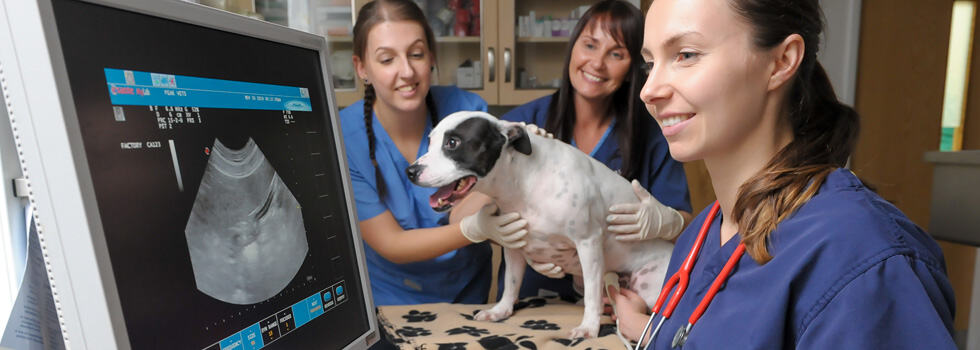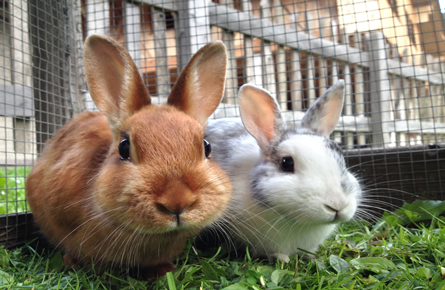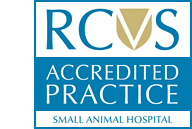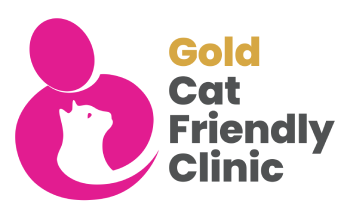Whether your dog needs preventive measures or treatment for an ongoing flea problem, we provide the best flea treatments for dogs in Sheffield to ensure their comfort and well-being.
Give your dog the comfort and wellness they deserve. Ignoring fleas can lead to unnecessary discomfort and health problems. Being proactive is essential to setting your dog up for a life free from fleas.
We understand the value of every moment, which is why we are committed to ensuring your dog enjoys happiness, vitality, and freedom from fleas for every minute of their life.
All year-round, tick, worming & flea treatment is just one of the many benefits of joining our Pet Health for Life Plan.
Begin Flea Treatment for dogs in Sheffield
For your dog to be healthy, a solid foundation is necessary. At Peak Vets, we emphasise the need of flea prevention because of this. It is far better to prevent fleas and deal with the problems and discomfort they might bring to your dog.
Why Prevention Matters
For dog owners and their animals, fleas can quickly lead to issues. These microscopic rodents can irritate skin, trigger allergic reactions, and cause itching. Furthermore, because fleas can transmit illnesses and parasites, they pose a major health concern to your dog.
Our flea prevention techniques are designed to keep your dog safe and comfortable. We provide a range of options that are safe and healthy for your pet. You and our staff will work together to choose which preventive measure best fits your dog's specific needs.
Don't wait for fleas to start bothering you. By using dog flea treatments in Sheffield, you can ensure your dog's comfort and wellbeing on a proactive basis.
Book a flea and worm treatment appointment
What are the symptoms of fleas for dogs?
Fleas are nimble, tiny insects that can cause a variety of discomforts when they live in your dog's fur. Dogs can contract fleas from a variety of sources, including as interacting with humans, animals, or settings that are infested.
Because fleas proliferate quickly, it's important to find and cure them as soon as possible. Some symptoms to be aware of are as follows:
Over-scratching or over-biting: Pay attention to what your dog does. If you see them biting or scratching themselves, especially in the vicinity of the neck, ears, and base of the tail, there may be fleas present.
Visible Tiny Dark Specks: Flea dirt, sometimes referred to as tiny dark specks, may be clearly visible on your dog's skin or in their bedding. These particles are a telltale symptom of a flea infestation since they are essentially flea droppings.
Skin Redness, Irritation, or Rashes: Your dog may experience skin redness and, on rare occasions, rashes as a result of flea bite irritation.
Hot Spots and Hair Loss: Hot spots are inflammatory, painful skin patches that can be brought on by fleas.
Restlessness or Indications of Discomfort: If your dog seems particularly restless, uncomfortable, or is having trouble going asleep, it could be due to flea discomfort.
You have to act as soon as you suspect that your dog has fleas. Our team at Peak Vets in Sheffield can perform a complete examination on dogs and recommend effective flea treatment options.
Our Services for Flea Treatment for dogs in Sheffield
Peak Vets offers thorough flea treatment for dogs in Sheffield to protect your pet's health. Some of the goods we offer are:
Topical flea preventatives: These treatments offer continuous protection against fleas by being applied directly to your dog's skin. Based on the size, age, and lifestyle of your dog, we will suggest the best product.
Oral Flea Preventatives: Due to their greater level of protection and convenience of application, certain dogs may favour oral treatments over other ones. You can decide what's best for your dog with the help of our doctors.
Environmental Control: We'll also offer suggestions on how to keep your dog's surroundings clean of fleas. Vacuuming and cleaning your home on a regular basis can help keep fleas out.
By offering these comprehensive services, we strive to equip you with the knowledge and tools required to protect your dog from flea-related discomfort and health risks.
Book a flea and worm treatment appointment
Choose Peak Vets for Flea Treatment for dogs in Sheffield
Choose the expertise and care that Peak Vets provides for the flea treatment of your dog. This is what makes us distinct:
- Veterinary Excellence: The two areas of specialisation for our team of knowledgeable veterinarians are flea treatment and dog care. We offer a wealth of expertise and experience to ensure your dog gets the best outcome possible.
- Tailored Solutions: We are aware that each dog is unique. We offer specialised flea treatment regimens that are made to fit the specific needs of your dog because of this. The welfare of your dog comes foremost in our minds.
- Safe and Effective Treatment: We use the most recent advancements in flea treatment to safeguard your dog's comfort and security. In addition to being effective, our therapies are gentle on your pet.
- Loving Care: Your dog is treated like family at Peak Vets. Our main priorities are their well-being, comfort, and health. In close collaboration with you, we'll make sure your dog gets the finest treatment available.
Book an Appointment for Flea Treatment for dogs in Sheffield
Maintaining the long-term health and happiness of your dog is one of the most crucial things you can do to prevent them from fleas. Our Sheffield facility boasts the newest gear and knowledgeable employees who genuinely care about your dog's health.
Make an appointment with Peak Vets right now! Our team is ready to help you provide the best flea treatment in Sheffield for your dog in addition to prevention measures.
Don't delay to provide your dog with the comfort and well-being they deserve. To live a life free of fleas, start your journey now with Peak Vets.
Spread the Cost of Dog Flee Treatment With Pet Health for Life

One excellent method to split the expense of your pet's regular medical treatment is with our Pet Health for Life Plan. Along with routine checkups that maintain your dog's health and make their life happier, you will receive all the necessary treatments to keep your dog free of ticks, fleas, and worms.
Lungworm FAQs
What are the signs of lungworm in dogs?
Lungworm in dogs is a parasitic infection that can cause a range of symptoms. The signs of lungworm can vary depending on the severity of the infection, the age and health of the dog, and other factors. Here are some of the common signs of lungworm in dogs:
- Coughing - this is one of the most common signs of lungworm infection in dogs. The cough may be persistent and can sometimes be accompanied by phlegm or blood.
- Breathing difficulties - lungworm can cause breathing difficulties, including shortness of breath and wheezing.
- Decreased appetite - dogs with lungworm may show a decreased appetite and a general lack of interest in food.
- Weight loss - if the lungworm infection is severe, the dog may begin to lose weight rapidly.
- Lethargy - dogs with lungworm may show a lack of energy and interest in exercise or play.
- Vomiting - in some cases, lungworm infection can cause dogs to vomit.
- Changes in behaviour - dogs with lungworm may exhibit changes in behaviour, such as restlessness, agitation, or depression.
If you suspect that your dog may have lungworm, it is important to take them to see your vet as soon as possible. Lungworm can be a serious and potentially life-threatening condition, but it can be successfully treated if caught early.
How do dogs get lungworm?
Dogs can get lungworm by ingesting snails, slugs or frogs infected with lungworm larvae. This can happen when dogs accidentally eat these creatures, drink contaminated water or eat grass that has come into contact with infected snails or slugs. Lungworm infection is more common in dogs that spend a lot of time outdoors. Preventive measures include avoiding contact with snails and slugs, providing clean drinking water and regular deworming.
Can a dog recover from lungworm?
Yes, with appropriate treatment, dogs can recover from lungworm. Treatment usually involves medication to kill the worms and supportive care. Early diagnosis and treatment are crucial for a successful recovery. Preventative measures, such as regular deworming and minimising exposure to snails and slugs, can also help to reduce the risk of lungworm infection.
What are the first signs of lungworm in dogs?
The first signs of lungworm in dogs can include coughing, difficulty breathing, reduced appetite, weight loss and lethargy. If you notice any of these symptoms or suspect a lungworm infection, it is important to seek veterinary advice immediately for prompt diagnosis and treatment.
How quickly does lungworm take to develop?
The time it takes for lungworm to develop in a dog can vary depending on several factors, including the dog's age, immune system and the severity of the infection. In general, it can take anywhere from a few weeks to several months for a dog to develop symptoms of lungworm after being infected with the parasite. However, some dogs may not show any symptoms at all, making it difficult to know if they have been infected. If you suspect that your dog may have been exposed to lungworm, it is important to speak to your vet and have your dog tested for the parasite to ensure prompt diagnosis and treatment if necessary.
Dog Flea & Worm FAQs
What is the best worming treatment for dogs?
There are many products available alongside new products emerging each year. We are here to help with selecting the best-suited protection for you and your dog. We have the most up-to-date advice and treatments available. We dispense prescription-only parasite treatments which are more effective than over-the-counter treatments and are often combined to tackle other parasites in one medication.
Under UK law, only veterinary surgeons can prescribe prescription medications as they are required to health assess a dog before prescribing them. For flea and worm treatments, vets usually require a health check every 12 months, which can fall under your pet's annual booster health check.
Please note other classes of medications vary with the frequency of health checks required.
What do dogs do when they have worms?
Worms (excluding tapeworm) are rarely seen, so it is difficult to know if your dog does have worms. Therefore, prevention is much safer for your dog. Tapeworms can appear as rice-like grains around the anus or in faeces. It is essential that you give regular treatments, especially if you have children. Puppies are also at a higher risk of worms. Worms are zoonotic meaning they can pass from animals to people.
Symptoms usually occur in high levels of infestation – these symptoms include:
- diarrhoea
- vomiting
- swollen abdomen
- lethargy
- nutritional deficiencies
- dehydration
- cough (in roundworm and hookworm infections)
- pneumonia (in serious cases of roundworm).
If you would like to discuss a worming treatment plan with our vet, you can contact us, and we can provide the most up to date and evidence-based recommendations.
What do vets use to deworm dogs?
There are many ranges of worming treatments that we can prescribe, including tablets, liquids, granules and spot-ons. The products can vary with the latest recommendations, we would advise contacting us to discuss our various products so we can give you the most appropriate recommendation. Flea treatment and worming regimes are not a one size fits all, so it's best to speak to us.
*Source: My Pet and I, March 2023









